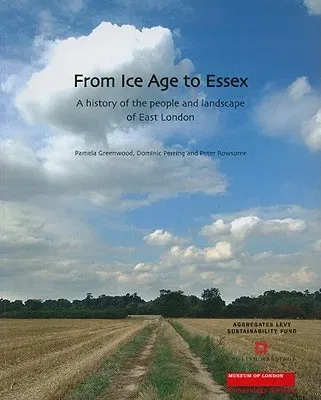This book presents a short history of human habitation in East London,
based on archaeological findings at gravel sites between 1963 and 1999.
To find the beginning of this story we have to go back half a million
years, to the time when advancing ice sheets pushed the Thames
southwards to its present course, depositing the river gravels that
exist across East London today. Archaeological work on the East London
gravels began when finds from gravel pits were given to local collectors
and museums. Many spectacular discoveries were made in the era when
gravel was dug by hand; they include a Roman stone coffin found near
Dagenham in 1928 and the rich Early Saxon cemetery with glass drinking
horns from Gerpin's Pit, Rainham, uncovered in 1937. The archaeological
sites which make up this story have names which speak of a time before
London's urban sprawl reached eastwards: Manor Farm, Great Sunnings
Farm, Whitehall Wood, Great Arnold's Field and Fairlop Quarry, to name
but a few. Discoveries have revealed the ancient landscapes of East
London and a history of human occupation from the third millennium BC
right up to the 19th century. The finds include evidence of where people
lived, and how they made a living and viewed themselves. These
settlement patterns, economic systems and cultural identities changed
over time and contributed to the form of today's East London.

